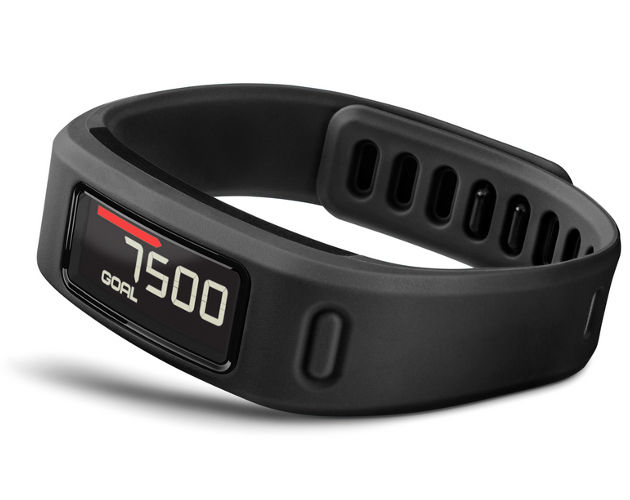Tech Tuesdays: Fitbands
October 14, 2014
As fit bands and wearable technology have become more prominent in our daily lives, it seems like almost every company has jumped on the bandwagon to come out with the latest and greatest. Companies such as Basis, Withings, Fitbit, Garmin, Polar, Jawbone, Samsung, Nike and now Apple, with iOS 8, have all come out in recent years with fitness trackers, but we’re here to sort through the clutter. We narrowed the massive list down to five that will most likely be best for you depending on how committed you are to fitness, the flashiness of each band and the accuracy. The best part is that all are between $100 and $150.
1. Garmin Vivofit ($128)
One of the biggest advantages that Garmin’s device has over others’ is the size and user-friendliness of the screen. It’s one of the easiest to navigate and its one-year battery life promise really sets it apart.
2. The Polar Loop ($100)
I would recommend this device to anyone in the market for a fit band, but specifically to those who swim. Being one of the few truly waterproof devices, the Polar Loop is perfect for any Michael Phelps fan. One of the few drawbacks found is that you can’t input calories eaten, but you can sync it with your phone’s apps to do so.
3. Jawbone UP24 ($130)
As one of the pricier fitness trackers, Jawbone’s new UP model allows you to scan food barcodes (how cool is that?). A major drawback is that it doesn’t have a screen and isn’t waterproof, but it is one of the more stylish devices.
4. Samsung Gear Fit ($150)
This extremely versatile device shares a lot of similarities with Basis’ Carbon Steel and B1 editions, as well as its competitor the Apple Watch. All of the devices sync with smartphones (like most) but can also receive phone notifications, have heart rate monitors and have pedometers. The trouble with the Samsung device comes with the confusion between the Galaxy S5 and the device. Both are capable of the same features and sometimes both try to gather data and so you have to set your preferences in the settings.
5. Fitbit One ($100)
Fitbit has come out with a number of devices for tracking fitness, and the Fitbit One is the ideal device for those on a budget and who aren’t too picky. The device tracks basic metrics such as sleep, steps taken, distance and calories burned and is very user friendly. Since it is cheaper though, it is not waterproof and cannot track cycling.
Most of these devices are very similar in basic capabilities and what devices they sync with, the difference is going to come with your budget, your preferred workouts and your specific taste. Hopefully this quick breakdown is able to help you find the right device for you and gets you back in the gym sooner.







